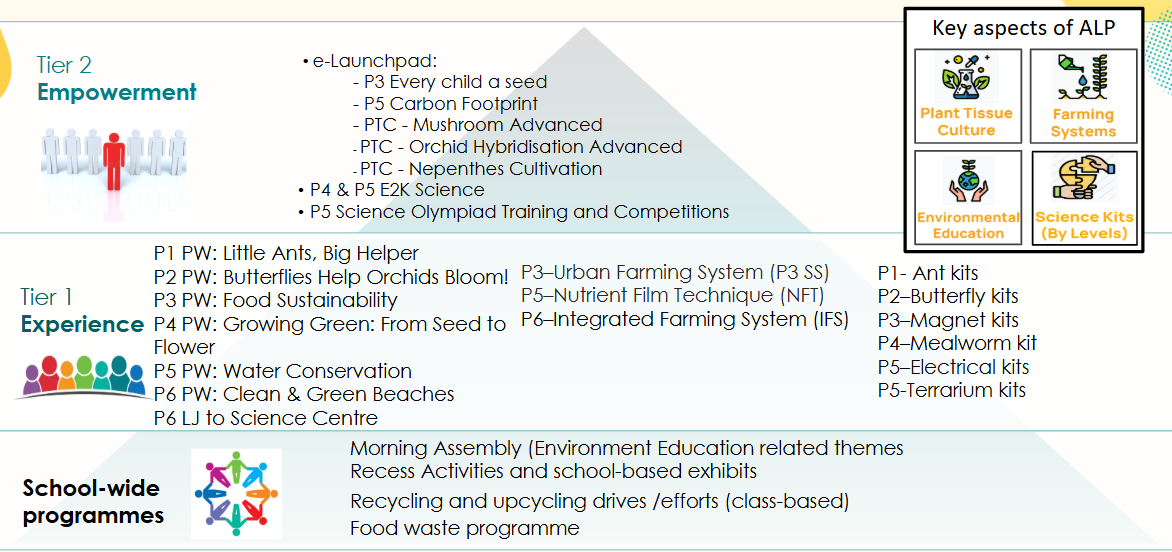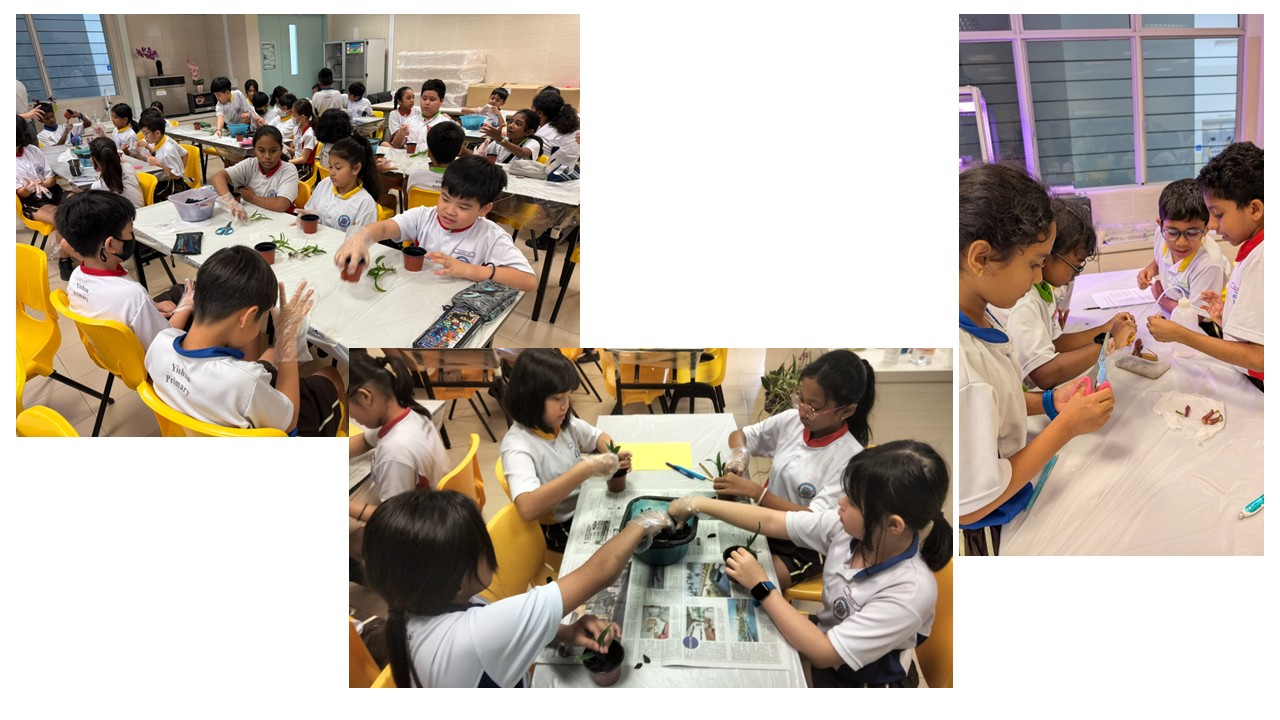Applied Learning Programme (ALP)
STEM (Sustainability)
Our ALP STEM (Sustainability) aims to connect knowledge and skills with real-life applications, while promoting sustainable practices and habits through our environmental education.
We emphasise the application of thinking skills and the integration of knowledge across subject disciplines, encouraging students to stretch their imaginations and apply what they learn in authentic contexts. Additionally, we provide students with a space where they can explore hands-on activities and apply their learned concepts and skills in real-world contexts.

The school integrates the learning of sustainability through the curriculum by making explicit connections between environment-related learning with real-life applications. Over the years, the school has built on a strong foundation by linking existing programmes with new offerings.
For example, the school leverages its learning and equipment from its food waste and plant tissue culture facilities to cultivate edible mushrooms. Such regenerative practices help students better appreciate the concept of circular economy, which is key to sustainability.
Environmental Sustainability
Aligned with the Eco Stewardship Programme, the school promotes environmental sustainability through the 4Cs: Curriculum, Campus, Culture, and Community. By empowering our students as eco-stewards, it strengthens the nexus between theory and practice, enabling them to experience and contribute to sustainability efforts. This approach also helps students better relate to green practices learned in the classroom and fostered engagement by encouraging them to review their actions and bring about the desired changes or outcomes. Overall, our ALP serves as a key platform for cultivating a sense of agency and ownership within our students, encouraging them to make positive environmental impacts.
For example, in the ’Much-room for Investigation’ programme, the school integrates sustainability into its curriculum by connecting environmental learning with real-life applications. This strengthens the nexus between theory and practice, making it easier for students to understand and engage with green practices. The programme empowers students as eco-stewards, giving them the opportunity to experience firsthand sustainability efforts and to give back to the community. Sustainability concepts are also infused in the character education program, with the goal of cultivating students’ sense of agency and ownership to effect positive change in the environment.
Curriculum
By aligning the programme to Primary Three science and social studies syllabus, students were engaged with meaningful learning experiences. Their learning was deepened as they were as they were provided with the opportunities to apply concepts learnt to authentic real-life context.
Campus
Tapping on existing infrastructure allowed for effective use of existing resources. Compost generated from food waste was used to grow edible mushroom in the PTC lab. During social studies lessons, students leverage on the school’s Aeroponics farming system for first-hand experience in transplanting seedlings and harvesting vegetables.
Culture
The programme allows students to learn how food waste from the school can be turned into useful compost. Through this, students understand the idea of a circular economy and how it supports sustainability.
Community
During Social Studies lessons, students grew leafy vegetables without soil using aeroponics and hydroponics. They donated the vegetables to a community fridge at a nearby HDB block, learning how to care for others and give back to the community.


